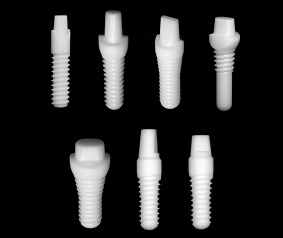Suggestions for Patients : How to Save Money On Quality Dental Implants
 Stan Jones - Dental Implants
Stan Jones - Dental Implants
 Aug 22, 2025
Aug 22, 2025
Smart Ways to Make Dental Implants More Affordable Without Compromising Quality
Dental implants are considered the gold standard for replacing missing teeth—offering unmatched durability, function, and natural aesthetics. However, the high upfront cost often leaves patients hesitant or financially strained. Fortunately, there are strategic ways to significantly lower your dental implant expenses while still receiving excellent care.
Whether you’re uninsured, underinsured, or just budget-conscious, here are ten practical tips to save money on dental implants in the U.S. and beyond:
1. Always Compare Pricing & Services
Never settle for the first quote. Pricing can vary dramatically from one dental office to another—even in the same city. Request detailed treatment breakdowns, including:
-
Consultation fees
-
Imaging (X-rays or CT scans)
-
Surgical costs
-
Implant components (post, abutment, crown)
-
Any add-on treatments like bone grafting
Also, consider quotes from oral surgeons and periodontists, not just general dentists. Newer clinics may also offer discounts as they build their clientele and reviews.
2. Expand Your Search Beyond Your Zip Code
Dental procedures in large metropolitan areas often come with higher price tags due to overhead costs. If you’re able to travel, look into clinics in smaller towns or suburban areas. Widening your geographic range could lead you to a more affordable yet equally qualified provider.
3. Explore Dental Tourism (With Caution)
For complex or full-mouth cases, traveling abroad can save you thousands—even after airfare and accommodations. Countries like Mexico, Costa Rica, Thailand, and Hungary offer lower-cost implant procedures performed by trained professionals. However, ensure that the clinic is reputable, English-speaking, and transparent with credentials. Check reviews and accreditations before booking your trip.
4. Look Into Dental School Clinics
Many U.S. dental schools offer implant services at significantly reduced rates as part of student training programs. Licensed professionals supervise all procedures. Though the appointments may take longer and require multiple visits, the savings are worth it.
Some respected schools offering low-cost implants include:
-
Columbia University College of Dental Medicine (NY)
-
University of Florida College of Dentistry
-
University of Texas Health Science Center
-
A.T. Still University (AZ)
-
Rutgers School of Dental Medicine (NJ)
Note: These programs may prioritize low-income or underserved populations.
5. Seek Help from Nonprofits & Dental Societies
Numerous charitable organizations and state dental associations offer free or low-cost dental clinics, especially for:
-
Seniors
-
Veterans
-
Victims of abuse
-
Individuals with disabilities
Check the American Dental Association’s directory for events or programs in your area. Local dental societies may also offer grant-based care or emergency funding options.
6. Use Healthcare Financing Companies
If you can’t pay the full cost upfront, consider applying for a financing plan through providers like:
-
CareCredit
-
LendingClub Patient Solutions
-
Alphaeon Credit
These allow you to break up your implant payments into monthly installments. Keep in mind—interest rates may apply, so read the fine print.
7. Join a Dental Discount Membership Plan
Discount dental plans are not insurance—but they function like a membership club. For an annual or monthly fee, members receive significant price reductions (10–60%) on a range of procedures from participating dentists.
Check platforms like:
-
DentalPlans.com
-
Aetna Dental Access
-
CignaPlus Savings
Just confirm your provider participates in the plan before signing up.
8. Understand Cheaper Alternatives
If implants are out of reach for now, explore other prosthetic options like:
-
Bridges: Less expensive than implants and can last 10–15 years.
-
Partial dentures: Removable and more affordable but less durable.
While these solutions don’t preserve jawbone structure like implants do, they’re still viable for many patients on a tight budget.
9. Review Your Dental or Medical Insurance
Most standard dental insurance plans don’t cover implants, considering them cosmetic. However, some may reimburse part of the cost up to the amount for a bridge or denture. Also, medical insurance may provide coverage if tooth loss stems from trauma, disease, or certain conditions—check your policy details and consult your provider.
10. Crowdfund Your Smile Makeover
If all else fails, consider launching a crowdfunding campaign to help cover your dental expenses. Platforms like:
-
GoFundMe
-
Indiegogo
-
Fundly
…allow you to share your story, explain your needs, and request help from friends, family, or kind strangers online. Make your appeal compelling—highlight how your oral health impacts your job, confidence, or ability to eat and speak properly.
Final Thoughts: Your Smile Is Worth Planning For
Dental implants may seem costly upfront, but they’re an investment in your long-term health, function, and appearance. With the right research, budgeting, and creative strategies, you can reduce costs without settling for subpar care.
Always verify the credentials of any clinic, especially when considering overseas or discounted services. With careful planning, restoring your smile doesn’t have to break the bank.
Trending News
-

The New Face of Plastic Surgery: How Ozempic, Hormones, and Social Media Are Reshaping Aesthetics in 2025 Dave.C
-

Are Your Implants Covered? Understanding Plastic Surgery Complication Insurance David.C
-

How to Treat Pigmentation Changes on Melanin-Rich Skin Post-Eczema David.C
-

10 Reasons Why Metal-Free CeraRoot Zirconia Dental Implants Are Superior Dr. Azadeh Khajavi - Excellence Dental
-

9 Recovery Tips From a Plastic Surgeon (and Patient) to Make Healing Easier Dave.M
